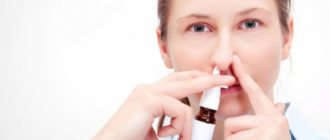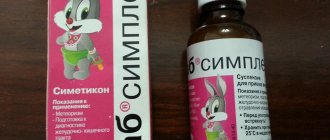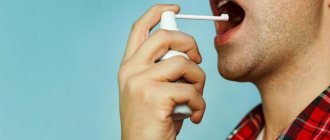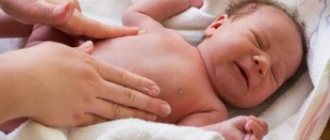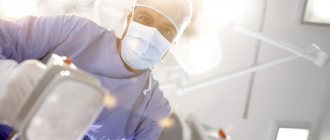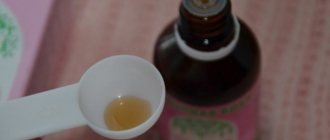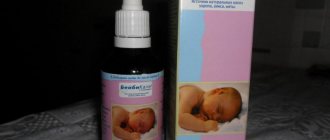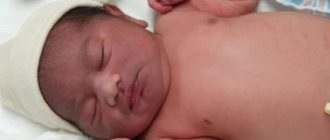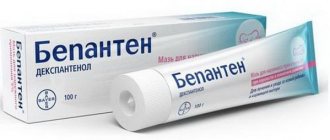Release form and composition
Before determining how to use Aquamaris for newborns, you need to find out what this product is and what indications and contraindications it has. This is a natural medicine consisting exclusively of a sterile solution of sea water. The drug contains many microelements, in particular such as:
- calcium;
- magnesium;
- zinc;
- chlorine;
- selenium.
Drops help to effectively dilute mucus and normalize its outflow. Magnesium and calcium help to quickly cleanse the nasal passages and there is much less accumulation of pathogens, allergens and bacteria. Zinc and selenium have an anti-inflammatory effect and help improve immunity.
https://www.youtube.com/watch?v=ytcreatorsru
The drug is produced in the form of drops and sprays intended for different age groups.
The drug is available in the form:
- Nasal spray for adults;
- Nasal metered spray;
- Nasal spray Forte;
- Children's nasal drops;
- Children's nasal spray.
The product contains sterile water from the Adriatic Sea, containing various microelements. Among them are magnesium and selenium, which stimulate local immunity and normalize mucociliary clearance, which is a nonspecific mechanism that protects the mucous membrane of the respiratory organs from a variety of external phenomena. Aqua Maris also contains sodium chloride and iodine, which have an antibacterial effect, helping to reduce inflammation and swelling.
Aqua Maris Baby is a sinus cleanser for children, made with water from the Adriatic Sea. The procedure for cleansing the nose with sea water has been known for several thousand years. Even ancient yogis used this practice when performing the Hatha Yoga complex.
The liquid is intended for the treatment of severe runny nose in children from three months.
Aqua Marisa Baby contains the following components:
- isotonic sea water solution;
- purified water.
The product is a colorless liquid that has no odor and has a salty taste. It does not contain chemical additives or preservatives.
The drug is available in a metal cylinder with a volume of 50 ml, under pressure. The bottle is equipped with a convenient spout that makes it easier to rinse your baby's nostrils. It is packaged in a cardboard box. Detailed instructions are included with the medicine.
The main active ingredient is natural sea water. There are 31.82 ml of sea water per 100 ml of solution. The additional components in the drops and spray include purified water, without preservatives.
Drops are available in a bottle without a dispenser. The spray has a small dispenser in the form of a nozzle, which helps to evenly distribute the medicinal substance throughout the mucous membrane in the nasal cavity. For infants, doctors most often prescribe Aquamaris Baby in the form of a spray.
Compound
- Spray Aquamaris, Aquamaris Oto and Aquamaris Baby contain sea water from the Adriatic Sea , rich in trace elements and salts. A 100 ml bottle contains 30 ml of sea water + ordinary purified water.
- Aquamaris Plus contains (per 100 ml): sea water – 25 ml + dexpanetnol 75 L, purified water.
- Aquamaris nasal drops contain 0.3 ml of salted sea water + purified water in 1 ml of medicine.
- The throat spray consists of 100% purified sea water, rich in minerals and trace elements.
- The composition of Aqua Maris Sense is also not very different from this line of drugs. Spray contains (per 100 ml): 0.9 g sea salt, purified water, 2 g ectoine.
- Also, preparations with this active ingredient are produced in the form of a washing device with a sachet containing salt enriched with essential oils of Italian immortelle and common myrtle.
- You can also buy a cosmetic product for skin care around the nose and lips Aquamaris at the pharmacy, which contains: panthenol, methylparaben, ethylparaben, isobutylparaben, vitamin E, white petrolatum, sorbitan stearate, petrolatum oil, phenoxyethanol, propylparaben, butylparaben , purified water, vitamin A.
What is the drug?
According to the instructions for use, “Aquamaris” for newborns is intended for the prevention and treatment of nasal congestion in infants and children of the first years of life. This medicine does not provoke allergies and has no side effects, which makes it completely safe.
https://www.youtube.com/watch?v=ytaboutru
This drug is approved for daily hygiene of the nasal cavity from the first days of a child’s life. Its effectiveness has been proven through various clinical studies. The drug gently cleanses the nose of the accumulation of pathogens and mucus.
Aquamaris nasal drops for newborns
Aquamaris drops can perfectly help out a young mother. Newborn children are absolutely defenseless and cannot take care of themselves, and it is also not possible to explain to them what needs to be done. But just like adults, they can be bothered by various diseases of the nasal cavity, so drops for newborns can help your baby
Aquamaris drops can be given to a child from the first day of his life; nasal drops consist of 30% distilled water and 70% sea water, so they are absolutely safe. In addition, there are no contraindications for them.
Pharmacological properties
The isotonic solution maintains the normal physiological state of the nasopharynx. It helps to quickly liquefy accumulated mucus, and also has a normalizing effect on the functioning of goblet cells of the mucous membrane. Trace elements of sea water help improve the function of the ciliated epithelium, thus increasing the resistance of the paranasal sinuses to harmful microorganisms.
With prolonged use of Aqua Marisa Baby, further spread of infection throughout the body (for example, into the ear cavity) is prevented. The drug significantly reduces the duration of acute respiratory diseases, and greatly increases the effectiveness of treatment with other medications (vasoconstrictors, bactericidal, etc.)
The drug helps especially well after surgery in the nasal cavity, namely when removing:
- polyps;
- abscesses;
- adenoids.
The medicine reduces the risk of postoperative complications and promotes rapid healing of the affected area.
Long-term use of the liquid is mandatory when staying in areas with low air temperatures, as it helps eliminate irritation of the nasopharyngeal mucosa. It is no less effective in eliminating dry mucous membranes in children who live in rooms with air conditioning.
Aquamaris baby for newborns helps maintain the normal physiological state of the mucous membrane in the nasal cavity. The main component included in the drug helps to quickly thin the mucus and accelerate the healing process of the mucous membrane, especially after surgery.
Sea water relieves swelling and irritation from the mucous membrane, thereby restoring normal breathing.
Pharmacodynamics
Aqua Maris is sterilized isotonic sea water enriched with sodium, magnesium, calcium, chlorine, sulfate and bicarbonate ions. It is extracted from the Adriatic Sea. The drug ensures the maintenance of the normal physiological state of the nasal mucosa, helping to thin the mucus and normalize its production in goblet cells localized in the mucous membrane of the nasal cavity.
The drug is characterized by a gentle anti-inflammatory and antiseptic effect, gently softens dry crusts and removes toxins associated with the activity of bacterial microorganisms. Aqua Maris increases the effectiveness of other medications, reduces the risk of infection, and normalizes the production of mucus or sulfur in the ENT organs.
Calcium and magnesium ions activate the work of the ciliated epithelium. Iodine and sodium chloride are antiseptics and catalyze the work of goblet epithelial cells. Ectoin prevents dehydration of tissues and cells and is a bioprotector for cell membranes located in the mucous membrane of the nasopharynx.
In patients with allergic and vasomotor rhinitis, Aqua Maris ensures the flushing and removal of haptens and allergens from the nasal mucosa and reduces the intensity of the local inflammatory process. When used for hygienic purposes, the drug allows you to clean the mucous membrane from particles of indoor and outdoor dust settling on it.
Pharmacokinetics
Aqua Maris is used exclusively topically and is practically not subject to systemic absorption. There is no accumulation in the body.
Pharmacological group
Allergic reactions are possible.
Since the drug does not have a systemic effect on the body, interactions with other drugs have not been noted.
Can be used with other drugs to treat runny nose.
| Category ICD-10 | Synonyms of diseases according to ICD-10 |
| J02.9 Acute pharyngitis, unspecified | Purulent pharyngitis |
| Lymphonodular pharyngitis | |
| Acute nasopharyngitis | |
| J04.0 Acute laryngitis | Acute catarrhal laryngitis |
| Acute phlegmonous laryngitis | |
| Lecturer's laryngitis | |
| J06 Acute upper respiratory tract infections of multiple and unspecified localization | Bacterial infections of the upper respiratory tract |
| Bacterial respiratory infections | |
| Pain due to colds | |
| Pain in infectious and inflammatory diseases of the upper respiratory tract | |
| Viral respiratory disease | |
| Viral respiratory tract infections | |
| Inflammatory disease of the upper respiratory tract | |
| Inflammatory diseases of the upper respiratory tract | |
| Inflammatory diseases of the upper respiratory tract with difficult to separate sputum | |
| Inflammatory diseases of the respiratory tract | |
| Secondary infections with influenza | |
| Secondary infections due to colds | |
| Influenza conditions | |
| Difficulty secreting sputum in acute and chronic respiratory diseases | |
| Upper respiratory tract infections | |
| Upper respiratory tract infections | |
| Respiratory tract infections | |
| Respiratory and lung infections | |
| ENT infections | |
| Infectious and inflammatory diseases of the upper respiratory tract | |
| Infectious and inflammatory diseases of the upper respiratory tract and ENT organs | |
| Infectious and inflammatory diseases of the upper respiratory tract in adults and children | |
| Infectious and inflammatory diseases of the upper respiratory tract | |
| Infectious inflammation of the respiratory tract | |
| Respiratory tract infection | |
| Qatar of the upper respiratory tract | |
| Catarrhal inflammation of the upper respiratory tract | |
| Catarrhal disease of the upper respiratory tract | |
| Catarrhal phenomena from the upper respiratory tract | |
| Cough in diseases of the upper respiratory tract | |
| Cough with a cold | |
| Fever due to influenza | |
| ARVI | |
| acute respiratory infections | |
| Acute respiratory infection with symptoms of rhinitis | |
| Acute respiratory infection | |
| Acute infectious-inflammatory disease of the upper respiratory tract | |
| Acute cold | |
| Acute respiratory disease | |
| Acute respiratory disease of influenza nature | |
| Sore throat or nose | |
| Cold | |
| Colds | |
| Colds | |
| Respiratory infection | |
| Respiratory viral infections | |
| Respiratory diseases | |
| Respiratory infections | |
| Recurrent respiratory tract infections | |
| Seasonal colds | |
| Seasonal colds | |
| Frequent colds and viral diseases | |
| J30 Vasomotor and allergic rhinitis | Allergic rhinopathy |
| Allergic rhinosinusopathy | |
| Allergic diseases of the upper respiratory tract | |
| Allergic respiratory diseases | |
| Allergic runny nose | |
| Allergic rhinitis | |
| Allergic rhinitis seasonal | |
| Vasomotor rhinitis | |
| Long-term allergic rhinitis | |
| Year-round allergic rhinitis | |
| Year-round allergic rhinitis | |
| Year-round or seasonal allergic rhinitis | |
| Year-round rhinitis of allergic nature | |
| Runny nose, vasomotor allergic | |
| Exacerbation of hay fever in the form of rhinoconjunctival syndrome | |
| Acute allergic rhinitis | |
| Swelling of the nasal mucosa | |
| Swelling of the nasal mucosa | |
| Swelling of the nasal mucosa | |
| Swelling of the nasal mucosa | |
| Swelling of the nasal mucosa | |
| Hay fever | |
| Persistent allergic rhinitis | |
| Rhinoconjunctivitis | |
| Rhinosinusitis | |
| Rhinosinusopathy | |
| Seasonal allergic rhinitis | |
| Seasonal allergic rhinitis | |
| Hay rhinitis | |
| Chronic allergic rhinitis | |
| J31.2 Chronic pharyngitis | Atrophic pharyngitis |
| Inflammatory process of the pharynx | |
| Hypertrophic pharyngitis | |
| Infectious and inflammatory diseases of the pharynx | |
| Infectious and inflammatory diseases of the oral cavity and pharynx | |
| Throat infection | |
| Exacerbation of inflammatory diseases of the pharynx and oral cavity | |
| Chronic pharyngitis | |
| J34.8 Other specified diseases of the nose and nasal sinuses | Restoration of the mucous membrane after surgical interventions in the paranasal sinuses |
| Disease of the nose and paranasal sinuses | |
| J35.0 Chronic tonsillitis | Chronic sore throat |
| Inflammatory diseases of the tonsils | |
| Chronic tonsillitis | |
| Tonsillar tonsillitis | |
| Chronic hypertrophic tonsillitis | |
| J35.2 Adenoid hypertrophy | Adenoiditis |
| Adenoids | |
| J37.0 Chronic laryngitis | Chronic atrophic laryngitis |
| J39.9 Upper respiratory tract disease, unspecified | ENT infections |
| Mechanical irritation of the mucous membrane of the upper respiratory tract | |
| Acute respiratory tract disease | |
| Recurrent ENT infections | |
| Chronic upper respiratory tract infection | |
| Chronic infections of ENT organs | |
| Y57.9 Adverse reactions during therapeutic use of drugs and medicinal products, unspecified | Allergic drug reactions |
| Allergic reactions to medications | |
| Allergic reactions to drugs | |
| Allergic reactions to medications | |
| Allergic reactions to taking drugs | |
| Allergic reactions to taking radiocontrast agents | |
| Allergic reactions caused by medications | |
| Drug allergy | |
| Anaphylactic reactions to drugs | |
| Anaphylactic reactions to taking drugs | |
| Hepatotoxic substances | |
| Hepatotoxic effect of drugs | |
| Drug-induced diarrhea | |
| Idiosyncrasy to medications | |
| Toxic idiosyncrasy | |
| Drug addiction | |
| Drug-induced leukopenia | |
| Drug fever | |
| Drug intolerance | |
| Drug-induced liver damage | |
| Drug-induced lung injury | |
| Undesirable effects of drugs | |
| Acute allergic reaction to medications | |
| Toxic reactions to drugs | |
| Y96 Work related factors | Impact of risk factors for the development of cardiovascular pathology |
| Occupational hazards | |
| Working in hypothermia | |
| Y97 Factors associated with environmental pollution | Atmospheric pollution |
| Inhaled allergens | |
| Exposure to harmful environmental factors | |
| Impact of adverse environmental factors | |
| Exposure to adverse environmental conditions | |
| Exposure to chemical factors | |
| Unfavorable environmental conditions | |
| Living in environmentally unfavorable regions and working in hazardous production conditions | |
| Ecologically unfavorable territory | |
| Z33 Condition characteristic of pregnancy | Pregnancy is normal |
| Z57 Occupational exposure to hazards | Exposure to chemical factors |
| Adverse effects of occupational hazards | |
| Adverse effects of occupational risk factors | |
| Occupational lung diseases | |
| Working under extreme professional loads | |
| Working in hazardous conditions | |
| Work in hazardous industries | |
| Working with occupational risk factors | |
| Z58 Problems related to physical environmental factors | Atmospheric pollution |
| Exposure to harmful environmental factors | |
| Impact of adverse environmental factors | |
| Impact of physical factors | |
| Hypotensive reactions during weather changes | |
| Meteopathy | |
| Adverse effects of environmental factors on the body | |
| Adverse environmental effects | |
| Increased sensitivity to weather changes | |
| Staying in unfavorable environmental conditions | |
| Living in environmentally unfavorable areas | |
| Working in environmentally unfavorable areas | |
| Abrupt change in climatic conditions |
Indications
No side effects have been identified after using the drug "Aquamaris". In rare cases, an allergy to some components of the drug may occur. It is worth noting that these drops should not be used every day for more than 3 weeks, as this may cause irritation of the child’s nasal mucosa.
In addition, it is prohibited to use the drug 1.5 months after opening the bottle. To avoid overdose, you need to use a pipette, as this will allow you to accurately determine the amount of medication administered.
https://www.youtube.com/watch?v=ytpolicyandsafetyru
Aqua Maris Baby is required for use if the following acute or chronic diseases are detected in a child:
- rhinitis;
- sinusitis;
- adenoids.
The product is also widely used for comprehensive treatment of allergic, vasomotor and atrophic rhinitis, as it helps flush out allergic particles and hapten molecules from the sinuses. It reliably copes with the manifestations of influenza and ARVI, and is also indicated as a preventive measure.
Since sea water is taken from a specific place in the Adriatic Sea, namely from a biosphere reserve in Croatia, it has a positive effect not only in eliminating the disease, but also as a means of daily care for the nasal cavity. Isotonic liquid Aqua Marisa Baby qualitatively cleans the child’s nose from dust, viruses and pathogenic bacteria.
Instructions for use: the drug is prescribed not only as a treatment, but also for the prevention of acute or chronic inflammatory diseases in the nasal cavity, nasopharynx, as well as for diseases of the paranasal sinuses.
- Rhinitis, including allergic etiology.
- Sinusitis.
- Adenoiditis.
- For influenza or ARVI.
- As an additional care product.
- After surgical manipulations in the nasal cavity.
- To quickly clear your sinuses of bacteria, dust or viruses.
In addition, doctors may prescribe the drug if the child has been treated with corticosteroids for a long time. Aquamaris baby will help restore damaged mucous membrane in the nasal cavity.
This remedy is used as an additional remedy in the treatment of diseases of the paranasal sinuses and the mucous membrane of the nasal cavity. According to the instructions, Aqua Maris is prescribed for the following diseases:
- Enlarged adenoids in children;
- Chronic and acute infectious and inflammatory diseases of the nose, nasopharynx and paranasal sinuses;
- Rhinitis of various etiologies.
The use of Aqua Maris is also effective for:
- Faster restoration of nasopharyngeal functions and prevention of infections after surgery in the nasal cavity;
- Facilitate nasal breathing and eliminate discomfort from dry nasal mucosa;
- Prevention of infectious diseases.
According to the instructions, Aqua Maris allows you to preserve the physiological functions of the nasopharynx in winter, when central heating is on and the indoor air is dry.
The use of Aqua Maris nasal spray helps reduce the risk of problems with the nasal mucosa in smokers, vehicle drivers, workers in hot shops, as well as people living in places with harsh climatic conditions and poor ecology.
Hypersensitivity is a reason to avoid using this drug. Aqua Maris nasal spray is contraindicated in children under 1 year of age.
Indications for use in children
For therapeutic purposes, Aquamaris can be used to treat rhinitis of any etiology (as part of complex therapy), inflammation of the pharyngeal tonsil of 1st and 2nd degree (adenoiditis) and other diseases of the nasopharynx and paranasal sinuses.
For prophylaxis, the drug is used when surgical intervention in the nasal cavity is necessary, as well as during epidemics of viral and respiratory diseases.
For newborns and infants up to one year, Aquamaris is often prescribed for physiological runny nose and for hygiene of the nasal cavity. It is especially important to rinse your nose in winter, when radiators and heating appliances are operating at full capacity.
How is the drug useful?
Instructions for use of "Aquamaris" for newborns indicate that this drug is created on the basis of sea water. It is enriched with various microelements. However, it does not contain preservatives, dyes or synthetic components. This remedy is used to combat diseases such as:
- sinusitis;
- rhinitis;
- sinusitis;
- inflammatory processes of an infectious nature.
The medicine is used to moisturize the nasal mucosa when it dries out, as well as to cleanse the nasal passages of dust, dirt, allergies and viruses. If a baby has a stuffy nose due to a sudden change in climate or has difficulty breathing, then this is the best remedy.
As stated in the instructions for use, Aquamaris for newborns is very well tolerated and rarely causes allergic reactions. However, the possibility of an allergy should not be completely ruled out. Therefore, you need to use drops very carefully, monitoring the body’s reaction.
When should you not use Aquamaris?
In extremely rare cases, a solution of sea water can cause an individual intolerance reaction. If you are hypersensitive to the drug, its use should be discontinued.
Parents should also be warned against daily long-term use of Aquamaris drops in newborns. Despite the natural composition of the product, it affects the nasal mucosa, dilutes secretions, and changes the microflora of the nasopharynx. If the nose is clean, the drug should not be abused: it is possible to completely stop using it or reduce the frequency of instillation (for example, up to 1-2 times a week).
For what diseases is it prescribed?
The healing properties of “Aquamaris” for a newborn are quite well expressed. Therefore, the product helps to cope with various respiratory diseases caused by infections. Drops based on sea water are simply irreplaceable if a child’s nose gets stuffy due to climate change.
In addition, a medicine made from sea water is intended not only to treat a runny nose, but also acute and chronic pathologies of the nasopharynx, and adenoid hypertrophy. The drug is used as a disinfectant solution after surgery. Drops are prescribed to restore the microflora of the nasal cavity.
What diseases are treated with the drug?
Taking into account the action of AquaMaris, which is prescribed in its instructions (it moisturizes the nasal mucosa and facilitates the discharge of mucus), it is prescribed for the treatment of diseases such as:
- acute and protracted diseases of the nose, nasopharynx and paranasal sinuses, which are infectious and inflammatory in nature;
- prevention of infections in the nasopharynx after surgery;
- enlarged adenoids in children;
- runny nose - normal, allergic, atrophic and vasomotor;
- nasal breathing improves;
- as a complex therapy for ARVI and influenza;
- dryness in the nasopharynx and accompanying discomfort (occurs among workers in hazardous industries, people living in rooms with dry air, drivers and smokers);
- seasonal viral infections;
- long-term treatment with hormonal steroids;
- preparation of the mucosa for the use of other drugs.
Instructions and method of use Aqua Maris baby
Aqua Maris Baby is used only intranasally. To eliminate diseases, it is necessary to carry out the procedure of washing each nostril 4 to 6 times a day. As a preventive measure, the use of liquid 2 to 4 times is indicated. When using it for hygienic purposes, twice a day is enough. The dose of the aqueous solution is determined individually, since the liquid must be poured into the nasal cavity in a thin stream over several seconds.
https://www.youtube.com/watch?v=ytpressru
The standard dosage for children under one year of age is about 1 ml at a time. The dosage for children over 2 years of age is not limited, as is the duration of rinsing.
The drug is prescribed intranasally. If doctors prescribe drops or spray for medicinal purposes, then the nasal cavity can be rinsed 4-6 times a day, as prescribed by the doctor, depending on the severity of the disease.
It is worth noting that the course of treatment for each child is individual. The drug can be used for a long time, since the main component is not addictive.
Aqua Maris in the form of drops is usually prescribed to premature babies and infants, 2 drops in each nasal passage 3-4 times a day.
For adults and children over 1 year of age, the drug in the form of a spray is more convenient, which is prescribed according to the following scheme for the treatment of diseases of the nasopharynx, vasomotor and allergic rhinitis:
- Children 1-7 years old - 1-2 injections into each nasal passage, a similar procedure should be repeated 3-4 times a day;
- Children over 7 years old – 2 injections up to 6 times a day;
- Adults – 2 injections, 4-6 times a day.
The course of treatment is determined by the doctor individually for each case, but, as a rule, does not exceed 4 weeks. To consolidate the result, treatment must be repeated a month after the end of therapy.
To prevent infectious diseases, it is sufficient to use Aqua Maris for a week from 1 to 6 times a day. Accumulated thick mucus is removed by instilling or injecting a sufficient amount of the drug until the mucus softens and can be removed. Children under 1 year of age are recommended to cleanse the nasal cavity of mucus accumulated during the day once a day by introducing 1-2 drops of the product into each nasal passage.
There are currently no cases of overdose of Aqua Maris registered.
Method of using Aqua Maris drops for children: for infants from the first day of life - 4 times a day, 2 drops in each nasal passage.
To care for and cleanse the nasal cavity of a child from birth to one year, it is recommended to prescribe Aqua Maris drops for children.
If a child over 3 months has a severe runny nose, it is advisable to use Aqua Maris Baby.
Rinse your child's nose in a horizontal position
- Turn the baby's head to the side.
- Place the tip of the Aqua Maris Baby balloon in the upper nasal passage. Rinse your nasal cavity for a few seconds.
- Help your baby blow his nose.
- Repeat the procedure for the other nasal passage.
Use of Aqua Maris baby in children over 2 years of age
- Tilt your baby's head to the side.
- Insert the tip of the Aqua Maris Baby balloon into the upper nasal passage. Rinse your nasal cavity for a few seconds.
- Help your child blow his nose.
- Repeat the procedure for the other nasal passage.
For medicinal purposes, each nasal passage is washed 4-6 times a day; for the purpose of prevention - 2-4 times a day. The duration of use of Aqua Maris baby is not limited.
from 2 years
from 1 year
https://www.youtube.com/watch?v=ytcopyrightru
from 3 years
from 1 year
from 1 year
| RUB 158.00 | |
| RUR 308.00 | |
| RUR 334.00 | |
| RUR 331.00 | |
| RUR 459.88 | pending product |
| RUR 369.00 | |
| RUR 465.00 |
Aquamaris is a safe drug for newborns
After the birth of a baby in the family, and even during pregnancy, many families begin to be more attentive to any medications that are prescribed to them or they decide to use them on their own.
Parents carefully read the instructions for use of the drug, read reviews about the drug on the Internet, and ask the doctor about adverse reactions and the safety of this medicine. And this is correct and understandable. After all, a new life that has just come into this world, which still needs to develop and become a little person, is very vulnerable to various pathological influences.
Therefore, the expectant mother should be attentive to everything she uses. Well, and even more so, all parents try to give only the safest things to a newborn baby.
However, despite all the precautions and protections, both a pregnant woman and a newborn child are susceptible to various infectious and allergic influences.
The most common of all diseases, of course, all people experience is a runny nose. And here present and future parents are faced with a real dilemma - what drug can be used to treat a runny nose in a child or a pregnant woman?
Aquamaris is an absolutely safe drug for treating runny nose in newborns and women during pregnancy.
Aquamaris for newborns consists of 70% sea water, rich in beneficial salts, and 30% distilled water.
Aquamaris is available in the form of drops, a nasal spray, a throat spray, a sachet for preparing a solution, and a nasal spray with panthenol. Each dosage form of the drug is used in a specific situation.
For newborns, Aquamaris is used in the form of nasal drops, which are available in 10-milliliter bottles.
It should be remembered that the use of the spray in children under one year of age is prohibited!
Since in children at birth the Eusachian tube, the canal that connects the nasal cavity with the middle ear, is short and wide, which facilitates easy and rapid penetration of infection from the nasal cavity into the middle ear with the development of otitis media.
And the spray can precisely facilitate the introduction of pathogens from the nose through the Eusachian tube into the middle ear, since the liquid from the spray is supplied under pressure and at high speed.
Sea water, which is part of Aquamaris for newborns, has antibacterial properties, promotes the healing of the mucous membrane, strengthens its protective functions, and, in addition, mechanically washes away both bacteria and viruses, and allergens from the nasal cavity and throat.
Aquamaris for newborns also perfectly moisturizes the nasal mucosa, improving breathing through the baby’s nose.
Therefore, Aquamaris for newborns can be recommended by a pediatrician for daily toileting of the baby’s nose.
For these purposes, it is enough to instill 2 drops into each nasal passage of the baby, 2 times a day. Aquamaris mechanically cleanses the nasal cavity, and, in addition, can cause the baby to sneeze, and the baby himself will clear the nasal passages by sneezing.
This is a safer way to clean the nose than cleaning the nose with cotton swabs, which is most often recommended by neonatologists in maternity hospitals.
In winter, when central heating is on and the air in the apartments is very dry, it is possible to use Aquamaris for newborns more often, if necessary, up to 4-5 times or more.
For runny noses of various etiologies, Aquamaris for newborns reduces swelling of the mucous membrane, thereby facilitating breathing.
In addition, Aquamaris reduces the amount of mucus and nasal discharge, improving the baby’s well-being.
To obtain a therapeutic effect, it is enough to instill Aquamaris for newborns, 4 drops into each nasal passage 3-4 times a day.
Since Aquamaris is not addictive when used, it can be used for a long time without any breaks. The duration of treatment can be any, until the symptoms subside.
For allergic rhinitis, Aquamaris can also be effective, as it washes away allergens from the mucous membrane, reducing their impact on the body. This means that the course of the allergic process in the child will be easier.
Aquamaris for newborns also perfectly prepares the nasal cavity for the use of other medications.
To do this, you need to drop about 5-6 drops into each nasal passage and clean the nasal cavity using a newborn aspirator. Excess drug flowing from the nasal passages must be removed with a napkin.
After rinsing the nasal cavity with Aquamaris, you can use any other medications, since it does not affect them.
Moreover, after rinsing the nose with Aquamaris, the use of any other medications will be more effective, due to which it is possible to reduce the dose required to obtain a therapeutic effect.
It is extremely rare, but still possible, to develop allergic reactions to Aquamaris.
Therefore, the use of the drug in a newborn for the first time should be careful; it is necessary to monitor how the baby reacts to the drug.
If you are still unsure whether Aquamaris is suitable for your child, consult your pediatrician.
Use of the drug for the treatment of infants
According to the instructions for use, Aquamaris spray should not be used for newborns, since this form of release is intended for children after 1 year. Infants are prescribed the drug only in the form of drops. You need to instill 1-2 drops into each nostril 3 times a day for preventive purposes, and 2-3 drops 3-4 times a day for treatment.
To eliminate signs of the disease, the duration of therapy should be 2-3 weeks. For preventive purposes, the course of therapy should be repeated after about a month. As written in the instructions for use, Aquamaris Baby for newborns can be used together with vasodilating drops. If they were prescribed by the attending doctor. “Aquamaris” in this case increases their absorption.
Drug interactions
When using Aqua Marisa Baby, there are no contraindications for taking any additional medications prescribed by your doctor, since it does not have any systemic effect on the functionality of the body. However, experts say that when intensively rinsing the nasopharynx, it is not advisable to treat rhinitis with additional medications.
Aqua Maris® nasal drops for Children, intended for the treatment and prevention of a runny nose in an infant, are sterile and contain a whole range of useful microelements. Zinc and selenium increase local immunity, magnesium and calcium stimulate the work of epithelial microcilia, which remove mucus from the nose along with microbes and allergens.
Treating snot in a baby with plain water with salt, baking soda or saline is ineffective, since a simple solution of sodium chloride, for example, is not enriched with beneficial microelements of sea water. In addition, treating a runny nose in newborns and infants using saline solutions prepared at home can lead to bacteria entering the body of a month-old baby.
Because of this, the entire effect of the procedure will be lost, and in the worst case, in addition to a runny nose, another infection may occur. Aqua Maris for the treatment of a runny nose in a one-month-old baby has a high safety profile and can be used to get rid of snot in newborns, since the sea water included in its composition undergoes bacteriological ultrafiltration, and complete sterility is maintained at all stages of production.
Aqua Maris drops for children are recommended for use to relieve nasal congestion and treat runny nose in children and newborns. The product is available in 10 ml bottles. The drops are designed to clear a child's nose of accumulated mucus, which interferes with normal breathing, causing nasal congestion.
Aqua Maris nasal drops for newborns and children up to one year old contain microelements that increase local immunity (zinc and selenium ions), as well as promote the effective functioning of microcilia of the nasal mucosa (magnesium and calcium ions). The normal functioning of microcilia during a runny nose is necessary to remove foreign particles from the nose, including mucus, bacteria and viruses. The therapeutic effectiveness of Aqua Maris in the treatment of runny nose and colds in children has been confirmed by research by Russian scientists.
Nasal drops for newborns and children do not cause dryness of the nasal mucosa, as often happens when using vasoconstrictor drugs, but, on the contrary, restore and moisturize it. Aqua Maris for children is suitable for washing the nasal mucosa for a long time, while vasoconstrictor drugs should be used for no more than 3-5 days, otherwise there is a risk of changes in the structure of the cells of the mucous membrane and disruption of the functions of the nose as a whole.
Aqua Maris baby is recommended for the prevention and treatment of runny nose in children starting from 3 months. Aqua Maris baby is available in 50 ml cylinders equipped with a “physiological” tip designed specifically for a small child’s nostril. A stream of sea water washes mucus, bacteria and viruses out of the child’s nose, restoring nasal breathing.
Aqua Maris baby reduces the duration of respiratory tract diseases, reduces the risk of infection spreading into the ear and sinus cavity (otitis and sinusitis). Aqua Maris baby is made from natural sea water, does not contain preservatives or chemical additives, and therefore has a good safety profile.
The drug is well tolerated by patients and practically does not cause any adverse reactions.
Since Aqua Maris does not have a systemic effect on the body, no interaction with other drugs has been detected. Aqua Maris can be prescribed in combination with other drugs used to treat rhinitis.
Aqua Maris price, where to buy
The price of Aquamaris spray is usually from 250 to 300 rubles.
The cost of nasal drops is approximately 130 rubles for 10 ml. How much does it cost to buy nasal drops for infants in Kharkov? The price of Aquamaris drops for newborns is about 40 UAH.
The cost of the throat remedy is 230 rubles. for 30 ml of the drug.
A product for caring for the skin of the lips and around the nose for children and adults costs 150-165 rubles for a 10-gram tube.
The price of Aquamaris children's spray is 279 rubles, 50 milliliters.
The price of a device for rinsing the nose with sea salt (in a sachet) is 270-290 rubles.
- Online pharmacies in RussiaRussia
- Online pharmacies in UkraineUkraine
- Online pharmacies in KazakhstanKazakhstan
ZdravCity
- Aqua Maris sea salt for rinsing.
nose 2.97g 30 pcs. Jadran-Galenski Laboratories 283 rub. order - Aqua Maris nasal drops. for children dropper bottle 10mlYADRAN-GALENSKI LABORATORY j.s.
150 rub. order
- Aqua Maris Strong nasal spray. 30mlYADRAN-GALENSKI LABORATORY j.s.
RUB 278 order
- Aqua Maris replacement nozzles for nasal aspirator. for children 10 pcs. Pharmalink S.L.
RUB 222 order
- Aqua Maris nasal aspirator. for children with 4 replaceable nozzles Farmalink S.L.
RUR 348 order
Pharmacy Dialogue
- Aqua Maris (strong spray for throat 30ml) Jadran
RUB 226 order
- Aqua Maris baby nasal spray 50mlJadran
RUB 291 order
- Sea salt product for the Aqua Maris Lake device, sachet No. 30 Jadran
RUB 306 order
- Aqua Maris nasal spray 30mlJadran
260 rub. order
- Aqua Maris nasal drops bottle 10ml for childrenJadran
138 RUR order
Europharm* 4% discount using promo code medside11
- Aqua maris baby nasal spray 50 mlYADRAN-GALENSKI LABORATORY j.s.
350 rub. order
- Aqua Maris nasal drops for children 10 mlYADRAN-GALENSKI LABORATORY j.s.
140 rub. order
- Aqua Maris Strong throat spray 30 mlYadran-Galensky Lab.
RUB 299 order
- Aqua Maris classic nasal spray 30 mlYadran Galensky Laboratories JSC
550 rub. order
- Aqua Maris baby intensive rinsing nasal spray 150 mlYadran Galensky laboratories D.D.
416 RUR order
show more
Pharmacy24
- Aqua Maris 30 ml N1 nasal spray Jadran Galenska Laboratory d.d., Croatia
95 UAH.order - Aqua Maris 10 ml N1 drops Yadran Galenska Laboratory d.d., Croatia
51 UAH order
- Aqua Maris Plus 30 ml No. 1 spray Yadran Galenska Laboratory d.d., Croatia
117 UAH. order
- Aqua Maris 50 ml No. 1 spray Yadran Galenska Laboratory d.d., Croatia
124 UAH order
- Aqua Maris sea salt No. 30 sachet Jadran Galenska Laboratory d.d., Croatia
147 UAH order
PaniPharmacy
- Aqua Maris Aqua Maris spray name 150ml No. 1 Croatia, Jadran
206 UAH order
- Aqua Maris Strong Aqua Maris Strong nasal spray 30ml (bottle) Croatia, Jadran
146 UAH order
- Aqua Maris aerosol Aqua Maris nasal spray 30ml (bottle) Croatia, Jadran
110 UAH order
- Aqua Maris liquid Aqua Maris Nasal drops for children 10ml (bottle) Croatia, Jadran
68 UAH order
- Aqua Maris Aqua Maris nasal spray 50ml (can) Croatia, Jadran
151 UAH order
show more
How to properly rinse your spout?
For morning hygiene of infants, Aquamaris drops for newborns are often used. Instructions for use of the drug will help determine exactly how to carry out the procedure. You must be careful and do all manipulations carefully. The most important thing is not to harm the baby and provide him with the maximum possible benefit.
https://www.youtube.com/watch?v=https:accounts.google.comServiceLogin
You need to lay the child on his back and turn his head slightly to the side. Prepare all the required materials for nasal rinsing. Be sure to prepare:
- cloth napkin;
- cotton wool;
- tissue flagella.
It is not recommended to use cotton swabs, as there is a high risk of injury to the nasal passages. Holding the child's head, drop 2 drops of medicine into the nostril. If discharge appears from the nasal passages, you need to blot it with a napkin. To remove residual mucus, you can use small tissue flagella.
As stated in the instructions for the drug "Aquamaris" for newborns, performing the procedure requires certain skills.
Overdose
Ordinary nasal drops contain vasoconstrictor substances that help eliminate a runny nose by spasming the vessels of the nasal mucosa. However, after 3-5 days, the walls of the blood vessels get used to this effect and the drug loses its effectiveness. In addition, with prolonged use, a persistent dependence on such drugs occurs, manifested in the form of chronic rhinitis.
According to the instructions, Aquamaris drops for newborns do not cause addiction or side effects. They do not dry out the nasal mucosa and do not provoke a burning sensation.
Oil drops for a runny nose should not be used for a baby in the first months of life, since the essential oils included in their composition can provoke an allergic reaction. In addition, particles of these components can enter the child's respiratory tract and provoke an attack of suffocation.
Ease of use. The sea water in Aqua Maris Baby is in metal cylinders under pressure and is easily sprayed even with gentle pressure. Thanks to its convenient shape, Aqua Maris Baby can be carried with you in order to use it to rinse the baby’s nose outside the home (for example, while visiting).
Safety. Sea water for Aqua Maris preparations is taken from a depth of 5-10 m in the Adriatic Sea, far from cities and industrial zones. Using bacteriological ultrafiltration, water is purified from microorganisms and impurities. Water treatment is carried out under strict sterile conditions. The water is not subjected to conventional sterilization methods, due to which all useful salts and microelements (calcium, sodium, zinc, selenium, etc.) are preserved.
"Aquamaris" for newborns and older children
Inflammatory diseases of the nasal mucosa in children under one year of age are much more severe than in older children or adults. Firstly, infants are not yet able to independently cleanse the nasal cavity of accumulated secretions. Secondly, their nasal passages are narrower and shorter, and therefore even slight nasal congestion can lead to blockage of nasal breathing. This, in turn, causes certain problems with feeding and causes sleep disturbances for both the baby and his parents.
With the help of "Aquamaris" you can solve a number of problems caused by pathological changes in the nasal mucosa. First of all, this drug helps to wash away bacteria and viruses from the surface of the epithelium. The components of the medicine also help to thin the mucus and, thus, contribute to more effective cleansing of the nasal cavity.
The benefits of salts
Magnesium and calcium ions contained in sea water can enhance the movements of the cilia of the ciliated epithelium. The latter lines the upper sections of the respiratory tract, and the movements of its cilia prevent pathogenic microorganisms from fixing on the mucous membrane of the nasal passages and provoking inflammatory changes. In addition, this mechanism provides the function of self-cleaning of the nasal cavity from accumulated mucus and crusts.
Thus, due to Aquamaris salts:
- stimulates the movements of epithelial cilia;
- helps the child’s body resist respiratory infections;
- prevents the development of complications of ARVI.
Prevention of runny nose in newborns
In the first month of life, the drug “Aquamaris” is considered simply an indispensable assistant for a baby’s morning hygiene. The well-being and mood of the child will depend on how well the parents wash the baby’s nose. The nasal cavity must be cleaned regularly, taking into account the indicated dosage.
During the washing process, you must adhere to certain rules. If the baby is capricious or nervous, then you need to initially calm him down. You can instill the medicine only in a calm state, so as not to accidentally injure the mucous membrane during the procedure.
Use in childhood
https://www.youtube.com/watch?v=upload
It is possible to use the drug in children according to indications when selecting the appropriate dosage regimen.
Place the child in a lying position; the head must also be turned to the side. Then insert the tip into the nasal cavity and rinse the sinuses. After a good rinse, the child should blow his nose. If necessary, the procedure can be repeated, but with an interval of at least 30 minutes.
At this age, the procedure can be performed in any position convenient for the child. You can rinse with the solution in front of the sink. To do this, the child must lean forward a little. Be sure to tilt your head to the side so that the solution does not penetrate into the ear cavity. The further washing scheme is the same for children from 2 years of age.
Many people ask the question, does the drug have contraindications for use? Not really. Aqua Maris is considered safe, but you should still consult a doctor before use. The doctor will be able to tell you how to properly rinse using other methods, for example the “Cuckoo” method, which can be used from the age of 2.
Remember, if you rinse your nose incorrectly, complications may arise, most often otitis media (solution getting into the ear cavity). Therefore, carry out the procedure carefully and follow all the doctor’s recommendations.
Contraindications
The product is contraindicated:
- if allergic to any of its components;
- with frequent nosebleeds;
- when tumors appear in the nasal cavity;
- if the nasal passages are completely obstructed.
Nasal, metered-dose spray should not be administered to children under one year of age.
Aquamaris Oto is also not recommended for use on children under 3 years of age, during exacerbation of chronic otitis media and acute otitis media . The tip should not be inserted too deeply into the ear.
What to replace the drug with?
There are a variety of analogues of Aquamaris that can be used for children to rinse the nose and treat a runny nose. Among the main medicines like this are the following:
- "Marimer";
- "Otrivin Baby";
- "Aqualor Baby"
However, it is worth noting that only the attending physician should select the medicine, since not all of them are interchangeable. Many doctors believe that Aquamaris is one of the most effective and fast-acting medications used to treat the common cold. This drug has a very fast effect and does not harm the health of newborns.
Reviews and cost
Before using this medicine to treat a child, you need to study the instructions for using Aquamaris for newborns. The price of the drug depends on the form of release. The cost of the drops is approximately 100 rubles, and the spray – 250 rubles.
Before using the drug "Aquamaris" for newborns, the instructions for use and reviews should be studied first. Pediatricians prescribe this particular medicine to cleanse the baby’s nasal cavity. Doctors note that the medicine is completely safe for infants, since it contains only natural ingredients.
The sea salt solution is completely sterile. The microelements included in the composition help improve the baby’s immunity, which is very important for him. Numerous positive reviews are received from users who use the drug “Aquamaris” for therapy or prevention of runny nose in infants.
First of all, they are due to the complete safety of the drug, ease of use, effectiveness and quick action. In addition, there are no restrictions on the duration of use of the product. It is also possible to use it after the main treatment of nasal congestion for prevention.
This drug has practically no negative reviews, besides the fact that some consider it quite expensive. Some users of this medicine note that they encounter certain difficulties when putting drops into the nose of a newborn child, but this applies not only to this medicine.
Some mothers notice that after being discharged from the maternity hospital, the child’s nose breathing began to deteriorate due to the dry air in the apartment. After using Aquamaris drops several times, the baby’s breathing returned to normal. Therefore, this medicine can be used daily for hygiene procedures.
Some parents note that the child began to develop an allergic reaction while using these drops. After each instillation of the Aquamaris drug, the nose began to become even more stuffy and breathing became difficult. That is why, before use, despite all the safety of the product, you should definitely consult with your doctor.
Reviews of Aqua Maris indicate that the drug in the form of drops and nasal spray is very popular. Most patients speak positively about it, noting that the drug acts quickly and alleviates the patient’s condition already on the first day of use, and allows for good removal of allergens, bacteria and viruses from the nasal mucosa.
Another advantage is the absence of preservatives, the possibility of use in pregnant and lactating patients, and the ease of use of Aqua Marisa in the form of a spray. Parents often use the drug to rinse the nose of children, starting from newborn age. However, some patients are dissatisfied with the high cost of the drug.
Analogues of the drug
Nasal rinses are widely available in pharmacies. However, the vast majority of them are made in the form of a spray and, in accordance with the instructions for use, are contraindicated in children under 1 or 2 years of age.
If we talk about drip injection of a solution of sea water into the nose of babies, then there are not many analogues to Aquamaris:
Marimer drops are produced by the French Laboratory Gilbert. The ratio of sea and distilled water is 31.82%: 68.18% - similar to the concentration of Aqua Maris. According to consumers, the advantage of Marimer is its packaging - 5 ml plastic bottles (from 5 to 20 per pack). In addition, Marimer, if we compare the same volume of product, is 5 times cheaper than Aquamaris drops for newborns.
Morenazal is a nasal rinse made in Russia (Sintez). Unlike Aquamaris and Marimer, Morenazal is not made from sea water, but from water for injection with the addition of sea salt. The salt concentration of the drops is 1.08% - almost the same as that of Aqua Maris (0.9%). Morenazal drops contain a similar set of microelements. In addition, Morenazal wins in price.
Aqualor in the form of drops (Baby) with a volume of 15 ml is also a good alternative to Croatian drops. When choosing between Aquamaris and Aqualor for newborns, you should take into account that the second is about 30% cheaper in price.
Analogs
https://www.youtube.com/watch?v=ytadvertiseru
On the market you can find medications that have a similar effect on the condition of the nasal mucosa in a child. Among the most effective are:
- Marimer;
- Physiometer;
- Nazomarin by Dr. Theiss.
However, none of these products contain natural trace elements that help reliably protect the nasopharynx from bacteria.
Analogs of Aqua Maris are Doctor Theiss allergol, Morenazal, Fluimarin, Marimer and Physiomer nasal spray.
Storage conditions of the drug
Store in a dry place at a temperature not exceeding 25 °C.
The shelf life of drops is 2 years, spray - 3 years.
The drug from an opened bottle must be used within 45 days, after which it will be unusable.
According to storage rules, Aqua Marisa Baby must be kept at room temperature. It is best to use a place for this that is not intended for children. Once the container is unsealed, it can be stored for no more than one and a half months. The shelf life of the sealed container is three years from the production date indicated on the packaging. It is prohibited to use the aqueous solution after this time.
Since the cylinder is under strong pressure, precautions must be taken when handling it:
- do not leave it exposed to direct sunlight;
- we do not allow the container to heat above 50 degrees Celsius;
- We do not pierce or burn even an empty vessel.
The drug Aquamaris Baby must be stored out of the reach of the child. The container itself is under high pressure, so it must be stored at room temperature, and also in a protected place from direct sunlight.
The medicine is valid for 3 years. Important! After use, do not squeeze or pierce the bottle. Since particles of compressed pressure remain in it. Otherwise, it may cause the container to explode slightly.
Drops and spray are available from pharmacies without a prescription from a doctor. Remember, in children under one year of age, use a 50 ml container.
